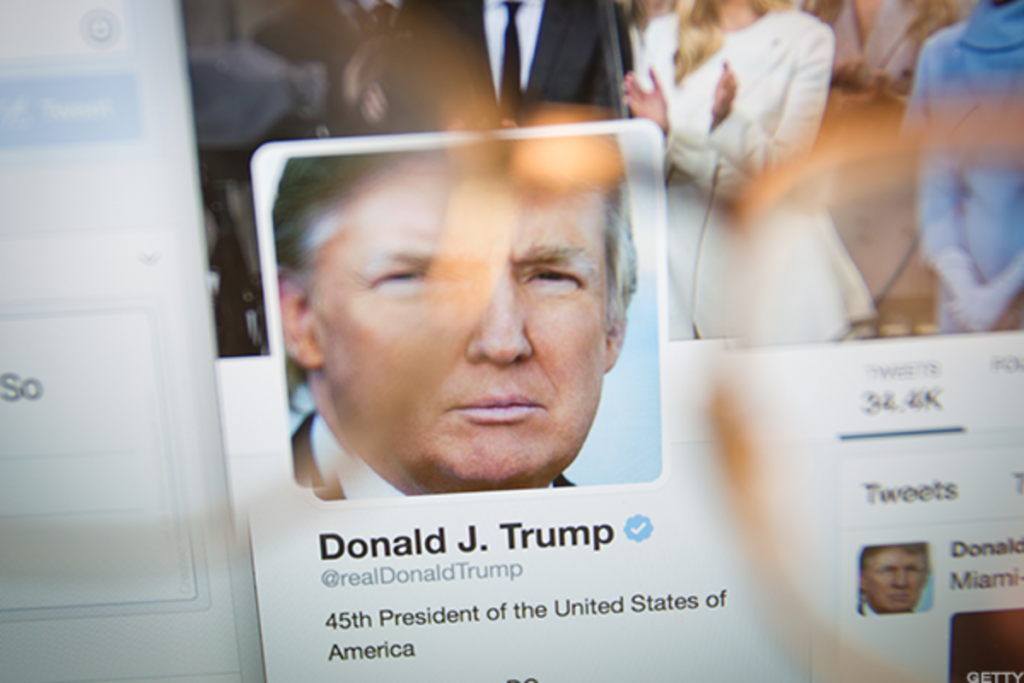
Amid a renewed debate over false posts from public figures, Twitter attached a label for the first time to a tweet by President Trump Tuesday.The tweet thread in question, which was posted on Tuesday morning, stated without substantiation that mail-in voting will lead to a “rigged election” by way of theft and other illegal activity. Five states already conduct all elections by mail: Colorado, Hawaii, Oregon, Utah and Washington. Other states allow mail-in voting in some circumstances. Florida, where Trump now claims residency, is one. Trump voted by mail in Florida’s primary this year.Later on Tuesday, his tweets were attached with a label reading “get the facts on mail-in voting,” which links to reliable information on the voting practice. The new label marks the first time Twitter has added a warning to a tweet by Trump, who has issued controversial or problematic tweets on many occasions.Trump was quick to respond, claiming that Twitter was stifling free speech. Tuesday’s actions followed Trump’s Memorial Day weekend tweets promoting a debunked conspiracy theory. Trump suggested to his followers that they should do some “digging” into a conspiracy theory involving the 2001 death of a congressional aide to Joe Scarborough, a former lawmaker and current MSNBC host who is critical of the Trump administration. The husband of the deceased staffer, Timothy Klausutis, wrote letters both to Trump and Twitter asking for the post to be removed. Twitter declined to remove the conspiracy post. Twitter’s existing terms of use generally consider posts from world leaders newsworthy, even if they contain false and misleading material. Earlier on Tuesday, Twitter told TheStreet that it is “accelerating” a planned expansion of its labeling policies. “We’re expanding the labeling work we’ve done for COVID misinformation to cover conspiracy theories like this,” said a Twitter spokesperson. “Tweets that fall into this category would get a label and would direct people to a landing page with the latest facts.”Weeks ago, Twitter announced new guidelines designed to mitigate COVID-19-related misinformation. Under the new system, Twitter applies labels to false or misleading posts related to the pandemic, and removing them if the risk of harm is deemed severe. Posts that contain disputed claims will carry either a label or a warning depending on the severity of the risk. With more than 80 million followers, Trump’s Twitter account is among the most-followed and engaged with on the site. It also serves as the President’s favored method of communicating with the public, a practice that has generated substantial controversy when his posts veer into problematic territory. Twitter’s policy framework around public officials generally errs on the side of leaving such posts up on the idea that removing them may violate the public interest, given that the platform allows for direct engagement with those officials. Exceptions include clear and direct threats of violence against an individual, promoting terrorism, and a handful of others. The social media firm reported strong trends in monthly and daily active user counts in the COVID-19 pandemic, but warned in March of a pullback in advertiser demand. Twitter shares are up about 5% year to date. “Given the number of followers Trump has, combined with the comments and retweets around Trump’s content, the platform benefits from more opportunities to serve ads to its users,” said Yuval Ben-Itzhak, CEO of the social marketing firm Socialbakers. “The more retweets and comments, the greater the supply of users who are available to respond to the demand from brands to serve ads.”
